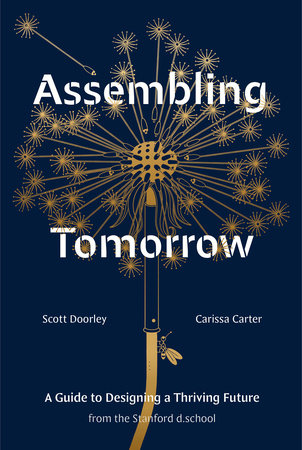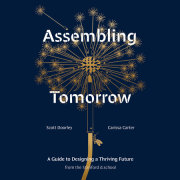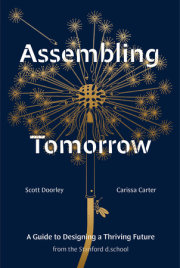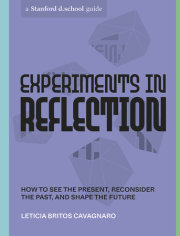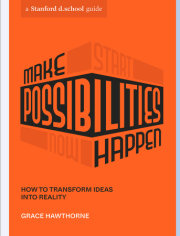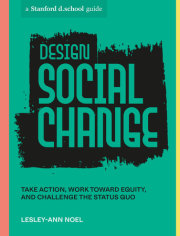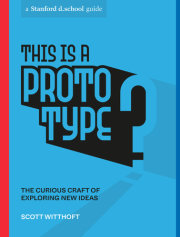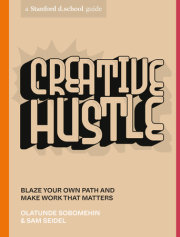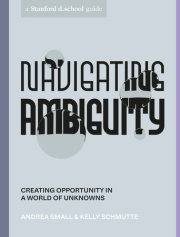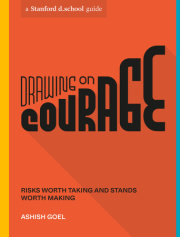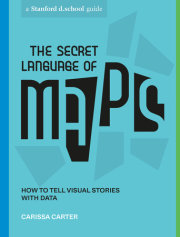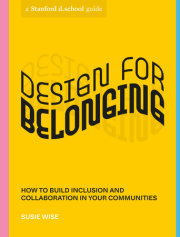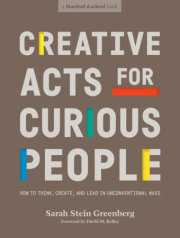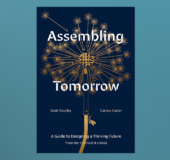Introduction
On the VergeIt may be that what we have is a world not on the verge of flying apart, but an uncreated one—still in shapeless fragments waiting to be put together properly. —Katherine Anne Porter, “The Future Is Now,” Mademoiselle magazine, 1950
Seventy years from tomorrow will be a special day. On this day, someone will feel the immense pressure of progress, and be paralyzed by possibility. Someone will rekindle a species. Someone will regret the impact of what they’ve put into the world. Someone will confuse code for consciousness. On this day, your youngest grandchild will unbox their first tabletop nuclear fusion generator.
The instruction book will be more than three centimeters thick, not because it’s complicated to run a nuclear fusion generator at home, but because there are at least fifty warnings in as many different languages.
Do not disassemble. Do not link with additional generators. Not for use by children under six. Use of nuclear fusion to harm others will result in prosecution. The generator itself will weigh no more than a carton of milk. Something so powerful should weigh more, they will think. But the instruction book—rather, the
warning book—will have a respectable heft. A lot could go wrong. Even more could go right. A lot could go wrong even
when everything goes right.
To be a maker in that moment, seventy years from tomorrow, will be to shape the world, to craft new possibilities and repair mistakes using the pieces that have come before.
Seventy years ago yesterday was its own special day.
On that day, someone broke ground on a radiant city of tall, evenly spaced high-rise buildings, hoping to solve the social problems of the era. Someone imagined a network of data spanning the globe, all accessible right from your desk. Someone questioned their role in building a bomb. Someone implanted an electric pacemaker on a human heart for the first time. On that day, someone sketched out the designs for a giant plane that would bring people together around the globe.
That plane would bring world peace as cultures mixed and mingled, or so they hoped. Also, larger planes would mean the airline could sell more seats! The plans for the plane were drawn by hand, with pencil lead, set squares, and steel rules. And the finished plane would emit more carbon dioxide than almost any other plane on the planet.
To be a maker in that moment, seventy years ago yesterday, was to rebuild the world itself, to make big changes in a world that had previously been making us instead. By then humankind had already made the move from what design philosophers Anne Pendleton-Jullian and John Seely Brown call “working
in the world” to “working
on the world.” The things people made were no longer sitting tidily within the bounds of nature and society but were actively altering both on a grand scale.
Today, too, is a special day.
Today, someone is putting the finishing touches on a machine-learning algorithm that will change the way you relate to your family. Someone is trying to design a way to communicate with animals in their own language. Someone is designing a gene that alters bacteria to turn your poop bright blue when it’s time to see the doctor. Someone is cleaning up the mess someone else left behind seventy years ago yesterday. Today, someone just had an idea that will end up saving one thing while it harms another.
All days are special in their own ways, but we happen to live in a time of quickening history, when what has been brewing for years coalesces overnight. We live in a time that defines the line between before and after. Today is an era of
runaway design, in which the things people make—whether they be everyday products, hybrid workspaces, viral media posts, recycling systems, gene therapies, artificial intelligence bots, nuclear fusion generators, or anything in between—tangle with our environment and emotions in unpredictable ways. Our by-products modify the biosphere, our social media shapes societal norms, and our datasets drive decisions, making the impacts of our actions hard to anticipate, notice, and repair.
We live in a moment when the materials of making are blurring the lines between people, technology, and the natural world. Technology is getting more humanlike, as computers take on the task of thinking for us and for themselves. Nature is merging with technology, as line editing DNA bases becomes an everyday occurrence. Meanwhile, our minds and media are so intertwined and entangled that it’s making our nervous systems nervous.
These things—the quickening, the tangled-up-ness, and the shifting roles of materials and machines—are the ingredients that make today special, fraught, and full of potential. To be a maker in this moment—to be a human today—is to collaborate with the world. It is to create and be created, to work and be worked on, to make and be made.
To be human is to tinker, create, fix, care, and bring new things into the world. It is to design. You—yes, you!—might design products or policy, services or sermons, production lines or preschool programs. You might run a business, make art, or participate in passing out meals to the poor. You may write code or pour concrete, lobby for endangered species legislation or craft cocktails. Wherever you fit in, you are part of shaping the world. This is design work.
This book is about that work—our work, your work. It is about how we make the things we live with and how to live with the things we make, large and small.
However, even with the best intentions and expertise, people keep making things that don’t quite work, that might not serve us, and that even wreak havoc. Why is that?
The answer is clear—and complicated. What we’ve been forgetting to include in our designs is our own weaknesses— not to exploit them (which many have done) but to respond to them (which most have not). We have plenty of foibles to choose from: the limits of our senses, our bias toward negativity, our relentless need to make sense of things, our insistence on clinging to our assumptions (even when we’re wrong), our overemotional flailings, and a very human ailment called apophenia (our tendency to derive patterns between unrelated things, but more on this later). Add to this list one of our most consequential failings: people’s paltry ability to predict the products of the things we make.
Things get messy when humankind’s seemingly ceaseless capacity to create rubs up against our limited capacity to understand our own influence. Building a product is hard work, but tracking its products—the results, ripples, and repercussions that the products produce—is another story altogether. When we figure it out at all, it’s usually well after we put our creations into the world. We end up with transportation that warms the planet, social media that frays our nerves, and artificial intelligence that alters our real relationships.
Copyright © 2024 by Scott Doorley, Carissa Carter, and Stanford d.school Illustrations by Armando Veve. All rights reserved. No part of this excerpt may be reproduced or reprinted without permission in writing from the publisher.

